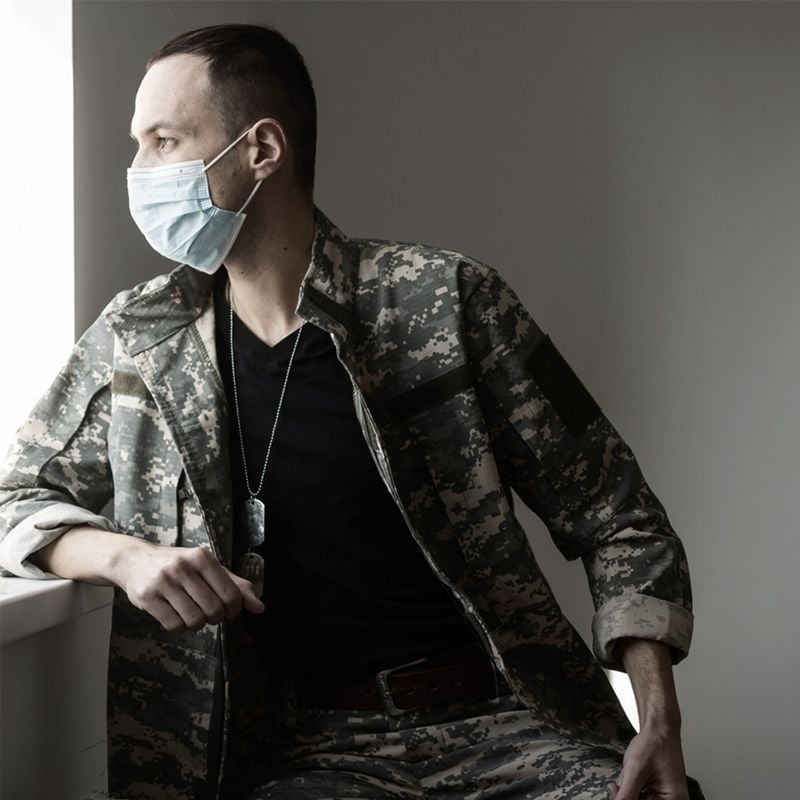Your Questions, Answered. Our FAQ section provides comprehensive insights into the lawsuit process, eligibility criteria, potential compensation, and how we can make a difference in your case.
Supporting Camp Lejeune Legal Claims: Advocating for Your Right to Justice.
At Saddle Rock Legal Group, we are dedicated to assisting individuals who have been impacted by the water contamination at Camp Lejeune. We are committed to helping them take the first step towards justice.
Supporting Camp Lejeune Legal Claims: Advocating for Your Right to Justice.
At Saddle Rock Legal Group, we are dedicated to assisting individuals who have been impacted by the water contamination at Camp Lejeune. We are committed to helping them take the first step towards justice.
Camp Lejeune Case Review
Who is qualified for compensation?
If you or a loved one lived or worked at Camp Lejeune between 1953 and 1987 and have since developed severe health conditions such as certain cancers, Parkinson's disease, or other illnesses linked to toxic water exposure. In that case, you may be eligible for compensation.
- Parkinson's disease
- Female infertility
- Non-Hodgkin’s lymphoma


Power in Partnership
United for Your Rights. Saddle Rock Legal Group has partnered with top leading law firms nationwide to bring justice to those harmed by the water contamination at Camp Lejeune. If you've been affected, we urge you to begin your claim today. Our dedicated team is ready to fight for the compensation and justice you deserve.
Simplified Process
Understanding the Claim Filing Process
Step One: Share Your Story
Provide us information about your time at the base and any health issues you’ve faced as a result.
Step Two: Experienced Evaluation
Our experienced team will assess your case to determine your eligibility for a claim.
Step Three: Claim Filing
If you’re eligible, we will meticulously prepare and file a claim on your behalf, focusing on the specifics of your situation.
Step Four: Guided Legal Journey
We will navigate the legal complexities and advocate fervently for your rights throughout the entire process.
Get Compensation for Your Case
Discover the Difference. Learn how our dedicated team at Saddle Rock Legal Group goes above and beyond to secure the compensation you need and deserve
FAQs
The Camp Lejeune case involves water contamination at the Camp Lejeune military base between 1953 and 1987. During this time, harmful chemicals were found in the base's water supply, potentially leading to serious health issues for those who lived or worked there.
Eligibility includes individuals who lived or worked at Camp Lejeune for at least 30 days between 1953 and 1987 and have since developed specific health conditions, such as certain types of cancer, Parkinson's disease, or other illnesses linked to toxic water exposure.
Covered conditions typically include various cancers (like bladder, kidney, and liver cancer), neurobehavioral effects, Parkinson's disease, and other illnesses scientifically linked to the contaminated water at Camp Lejeune.
Our team at Saddle Rock Legal Group offers comprehensive support, from assessing your eligibility and preparing your claim to navigating the legal complexities and advocating for your rights, ensuring you receive the compensation you deserve.
Deadlines for filing a claim can vary, so it's crucial to get in touch with us as soon as possible. We can provide you with the latest information on claim deadlines and ensure your case is filed in a timely manner.
Still have questions?
Call us today and our team would be happy to answer any additional questions you may have.

Tom Young is responsible for this communication. His contact is The Saddle Rock Legal Group LLC, 7301 N. 16th St., Suite 102, Phoenix, AZ, 85020. He is admitted in Florida, Arizona and the District of Columbia. Images are in a dramatized setting. The choice of a lawyer is an important decision that should not be based on advertisements alone. FREE BACKGROUND INFORMATION AVAILABLE UPON REQUEST. Some cases associated with other counsel. Saddle Rock Legal Group LLC maintains joint responsibility of those cases in accordance with the rules of the specific states and with informed consent of the client. Viewing this website or the receipt or transmission of information through it does not create an attorney-client relationship. An attorney-client relationship is formed only by express written mutual agreement through a retainer contract. Under no circumstance will The Saddle Rock Legal Group LLC, any of its lawyers, agents or co-counsel be liable to you or any other individual for any special, indirect, consequential, or incidental damages arising out of the use of, or access to, this information. Legal Services do not include those involving Florida or Louisiana law. Cases not accepted for matters in Florida or Louisiana. All rights reserved.
